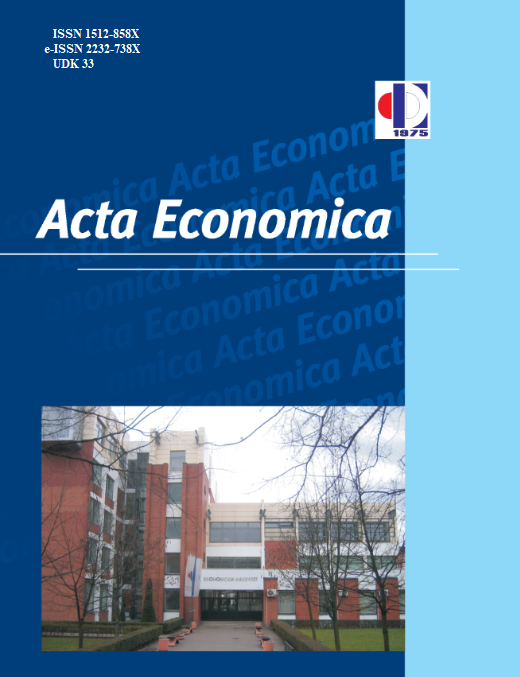Да ли и како је могућ оправак привреде у условима глобализације? // Whether and how it is possible the recovery of the economy in conditions of globalization?
DOI:
https://doi.org/10.7251/ACE1420039LAbstract
Резиме: Прелаз од социјалистичког ка тржишном облику привређивања, као саставном дијелу свеобухватних политичких и идеолошких промјена у Источној Европи, још увијек се показује као болан и неодвршен процес. С друге стране, према визији европске социјалне тржишне економије за 21. вијек, економија ЕУ треба да буде: интелигентна, одржива и интегративна. Такође, у стратешким документима се истиче да постоји широки консензус да се ради на имплементацији ова три приоритета до 2020. године, при чему они подстичу један други, те да се при њиховом провођењу у пракси морају уважити специфичности сваке државе чланице. Нема двојбе да се овдје истовремено ради и о реформама које се као задаци намећу пред земље које желе да се придруже ЕУ. У овом раду аутори имају за циљ да поређењем, прије свега, конкурентности као сводног показатеља укупног квалитета једне националне економије, земаља Југоисточне Европе и групе водећих тржишне економије које у том погледу заузимају лидерске позиције, укажу на потребу уважавања принципа “нове економије” и развоја властите иновационе стратегије.
Summary: The transition from a socialist to a market economic activities as an integral part of the overall political and ideological changes in Eastern Europe, still proves to be a painful and incomplete process. On the other hand, according to the vision of Europe’s social market economy for the 21st century, the economy of the EU should be: intelligent, sustainable and integrative. Also, the strategy document says that there is a broad consensus that this is the implementation of the three priorities of the 2020th year, where they encourage one another, and that when their implementation in practice must take into account the specificities of each Member State. There is no doubt that this also works well as reforms as tasks imposed for countries wishing to join the EU.In this paper, the authors aim at comparing primarily as highlight competitiveness indicators of the overall quality of a nation’s economy, the countries of Southeast Europe and the group’s leading market economies in this respect occupying leadership positions indicate the need to respect the principles of the “new economy” and the development of their own innovation strategy.

